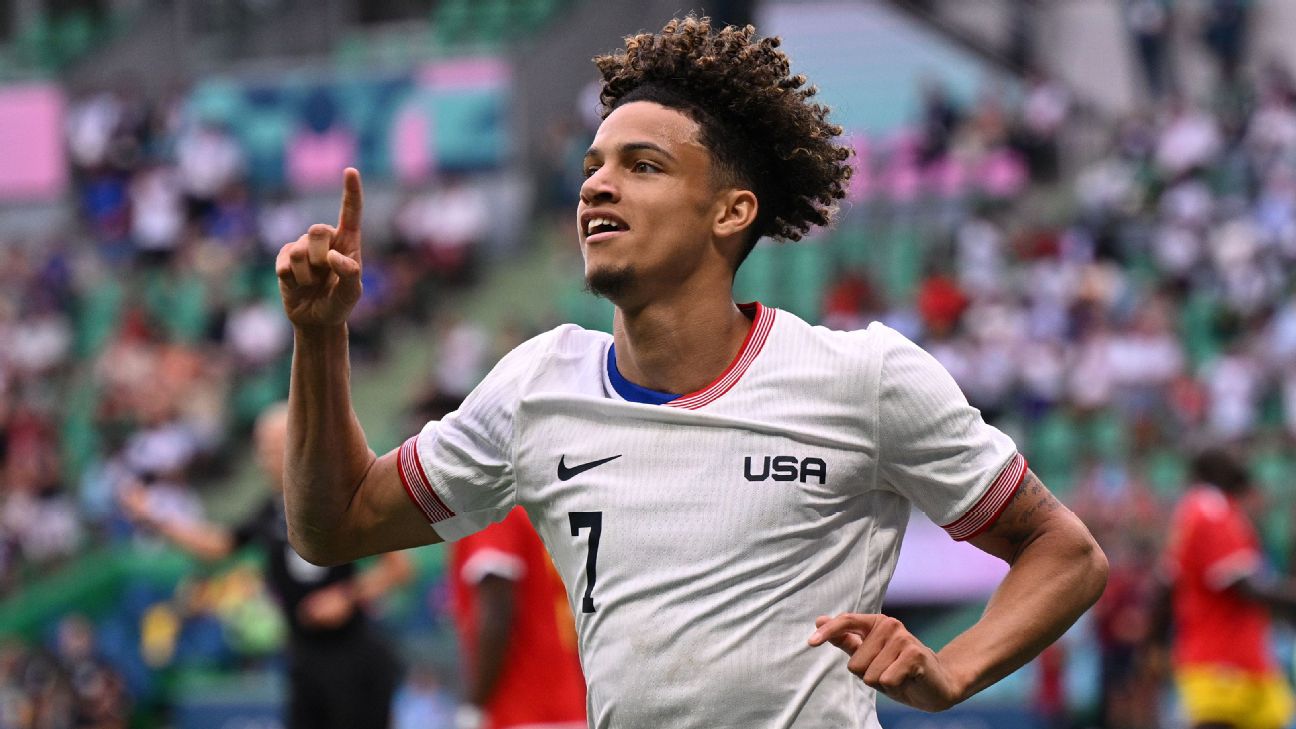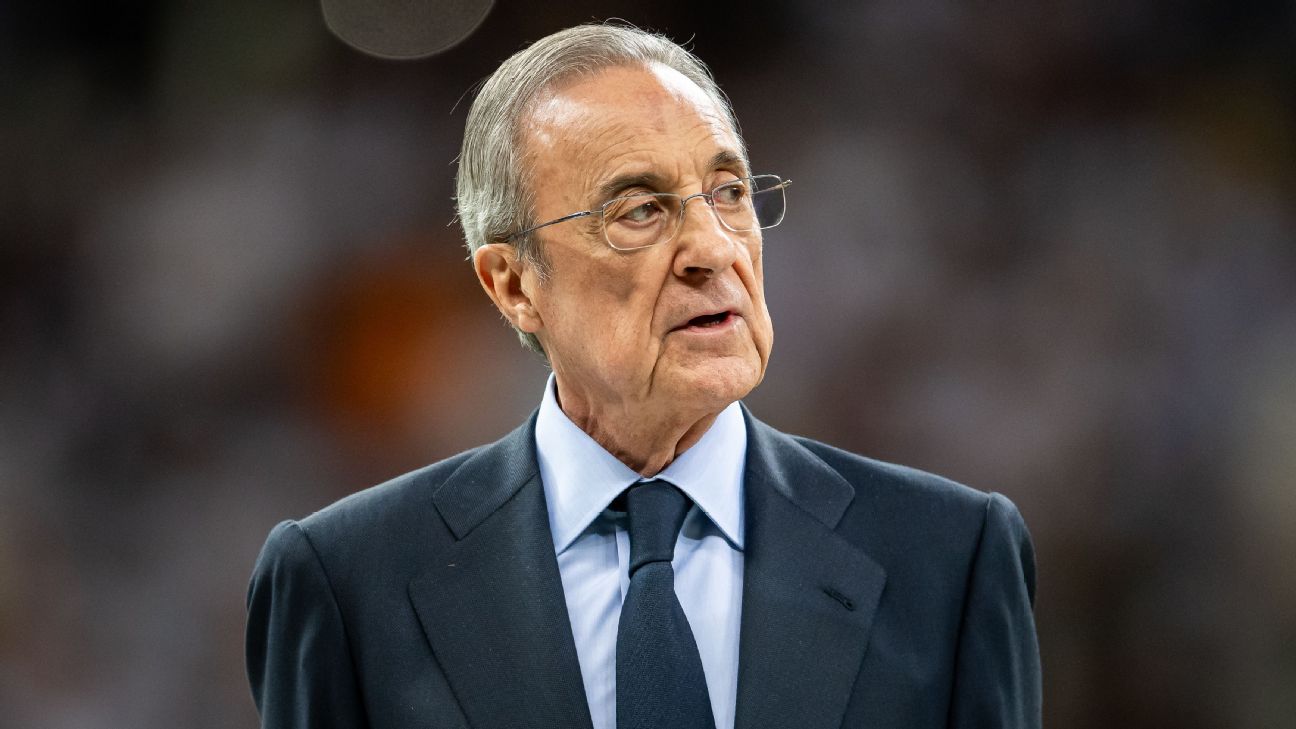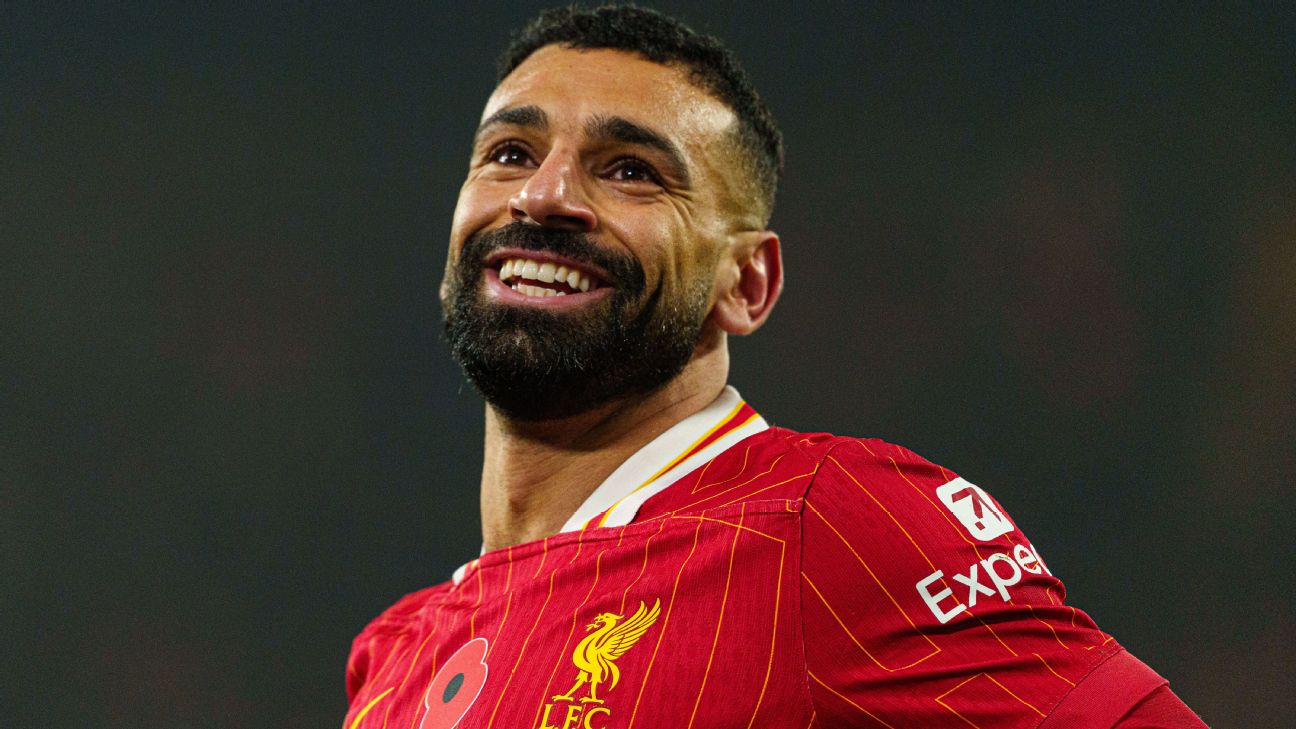SAINT-ETIENNE, France — After three group stage matches away from the main stage of these Summer Games, the U.S. men’s Olympic team is finally — finally — headed to Paris.
What’s waiting for it there? A long-awaited opportunity: the first Olympic knockout round game for an American men’s team in 24 years.
That was the reward for the U.S. after a stout and scintillating performance here on a steamy Tuesday evening. Seizing the moment in front of them, the group of (mostly) young Americans started fast and held steady to claim a 3-0 victory over Guinea at the Geoffrey Guichard Stadium.
The win solidified second place in Group A for the U.S., and set up a match with Morocco in the quarterfinals on Friday at Parc des Princes, home of Paris Saint-Germain.
Djordje Mihailovic, one of the three overage players each team is allowed in this under-23 tournament, opened the scoring for the U.S. with a masterful free kick that swooped over the Guinea wall before diving into the side of the goal in the 14th minute.
It was the second goal in as many games for Mihailovic, and even the spirited Guinean fans — who were in strong voice for most of the 90 minutes — offered grudging shrugs of approval at his bend.
“We knew that if we came out from minute one, foot on the gas, and get the first goal, that we’d be in a really good position,” defender Walker Zimmerman said, “and that’s what happened with a great free kick from Djordje to set the tone again.”
Mihailovic has been a fixture for U.S. coach Marko Mitrovic all tournament, but one of the changes the coach made before the match was inserting Griffin Yow up top with Paxten Aaronson and Kevin Paredes — a move that, on paper, looked to promise movement and activity.
It delivered. The trio was dynamic from the start, pinging balls back and forth and rarely hesitating to test Guinea goalkeeper Soumalia Sylla.
Paredes, who is in the running as the most consistent player for the U.S. this tournament, cut back sharply for Tanner Tessmann but saw the midfielder’s first-time shot saved. Paredes then tried again with a silky cross-field pass that Yow lashed out of the air, too, only to stare as it ricocheted off the base of the post. Still, another goal felt inevitable.
The Americans finally got their second just after the half-hour mark, and it was Paredes scoring instead of trying to set up someone else.
Aaronson took the ball in midfield and, after a few steps going sideways, turned an inch-perfect pass through the Guinean defense and directly into Paredes’ path. With Sylla coming out to try and narrow the angle, Paredes didn’t hesitate and drilled a low, powerful shot beneath the goalkeeper before peeling off to celebrate at the corner flag with a series of dance moves.
“I’ve been playing with and against Paxton since a young age, so we know each other well,” Paredes said. “We know each other’s qualities and yeah, he put me in a great position to score. I just had to do the easy part just to knock it in the net.”
Paredes then capped the scoring with a more brutish effort, lashing a wicked shot after dribbling into the right side of the penalty area with 15 minutes remaining. The goal made him the first American man to score multiple goals in an Olympic game since Ricky Davis in 1984.
“I think that this tournament could be a [breakout] for him in his career,” Mitrovic said of Paredes. “He has a lot of qualities and he’s always trying to be clinical, but he’s getting more mature in the final third and it’s great for his future as a player.”
By the time Paredes had finished the scoring, the Guineans seemed mostly withered in the heat, and at the final whistle, they slumped as the U.S. players celebrated on the field.
It has been a constant build for the Americans in this tournament, as they began with a disappointing 3-0 loss to France in the opener — the scoreline wasn’t reflective of what they felt was a better effort — but rebounded with a breakout performance against New Zealand, a 4-1 win that put them in position to go through if they could maintain their level.
They did. No U.S. men’s team has ever won a medal in the modern Olympic era, and that piece of history has motivated the Americans ever since they began training camp.
Now, the chase is still on. Paris awaits.



